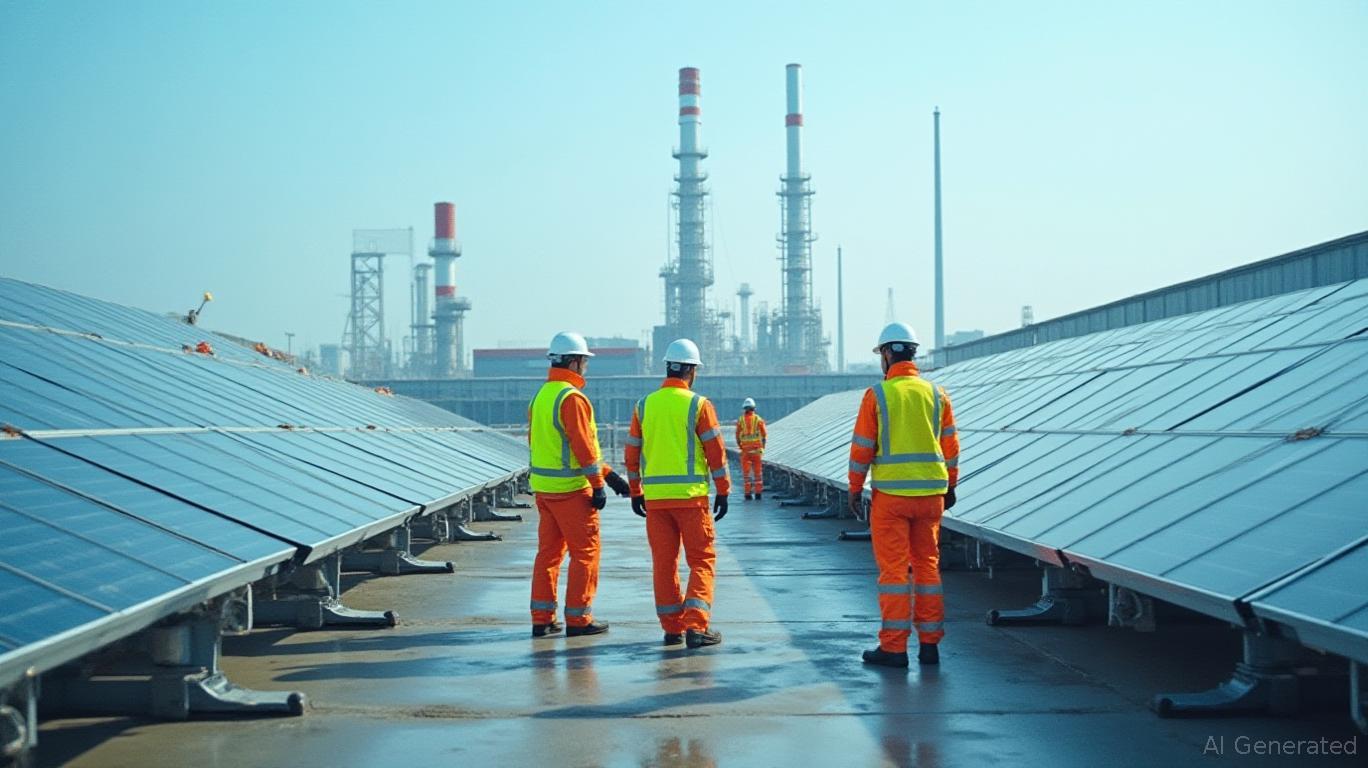The global energy sector is undergoing a seismic shift as companies race to decarbonize. Among the vanguard is Haffner Energy, a French firm that has staked its future on renewable hydrogen infrastructure. Its FY2024-25 results reveal both the challenges and opportunities of this pivot—and suggest the company could be nearing a critical inflection point.

The Financial Crossroads: Losses, but Momentum
Haffner’s net loss of €12.31 million for FY2024-25 underscores the risks inherent in scaling novel technologies. Yet beneath the headline loss lies a story of progress. EBITDA improved to -€10.01 million, a significant reduction from prior years, while cash burn dropped to €0.6 million per month—half the rate of 2023. This cost discipline, paired with a €7 million capital raise that expanded its free float to 25%, has bought the company time. The goal? Breakeven EBITDA by March 2026, backed by a robust sales pipeline of €388 million as of March 2025.
This metric will be key for investors. If the company can meet its breakeven target, it could signal the start of a self-sustaining growth cycle.
Strategic Shifts: From Fossil Fuels to Biomass Hydrogen
Haffner’s most compelling play is its focus on green hydrogen derived from solid biomass—a niche with fewer competitors than electrolysis-based approaches. The Marolles site, operational since February 2025, is the world’s first industrial-scale facility of its kind, producing 120 tonnes of green hydrogen annually. More than a production hub, it serves as a testing ground for clients, demonstrating the viability of biomass-derived hydrogen in industries like transportation and manufacturing.
The recent €8.3 million contract with H2 bois SA for a Swiss hydrogen-electricity-biochar plant is a direct outgrowth of this strategy. Such projects not only generate revenue but also validate Haffner’s technology in diverse geographies.
Partnerships as a Launchpad
Haffner’s alliances with industry leaders like LanzaJet, LanzaTech, and ATOBA Energy are equally critical. The tripartite SAF (sustainable aviation fuel) agreement with LanzaJet and LanzaTech, for instance, opens doors to a sector projected to grow at 14% annually through 2030. Meanwhile, ATOBA’s financing support for SAF projects reduces Haffner’s capital constraints.
The company’s innovation grant of €500,000 from Bpifrance further underscores government confidence in its approach—a valuable signal in regulated markets.
Market Tailwinds: The Green Hydrogen Boom
The renewable hydrogen market is expected to hit $120 billion by 2030, driven by mandates like the EU’s REPowerEU plan and corporate net-zero commitments. Haffner’s early-mover advantage in biomass-derived hydrogen positions it to capture this upside. Its new product, the Hynoca® Flex 500 IG—a modular, cost-effective hydrogen production unit—could give it an edge over competitors reliant on larger, less adaptable systems.
Risks and Realities
The path is not without hurdles. Scaling biomass-based hydrogen requires stable feedstock supplies and regulatory clarity on sustainability standards. Competitors like Siemens Energy and Air Liquide are also expanding rapidly. Execution risks persist, as delays in project timelines could strain cash reserves.
Investment Takeaway: A High-Reward, High-Risk Play
Haffner Energy is a classic “growth at all costs” story in a sector that demands it. For investors, the question is whether the company can convert its pipeline into revenue—and fast enough to sustain momentum.
If the pipeline materializes as projected, the company’s valuation could surge. However, with a still-negative EBITDA and no dividend, this is a bet for long-term, risk-tolerant investors.
Final Verdict
Haffner Energy’s FY2024-25 results highlight a company in transition: bleeding cash but gaining traction. Its strategic focus on biomass-derived hydrogen and partnerships in high-growth sectors like SAF positions it well for the green economy’s next phase. For those willing to ride the volatility, Haffner’s stock could be a leveraged play on the energy transition. But tread carefully—the road to profitability remains narrow.
Andrew Ross Sorkin is a pseudonym for this article.




